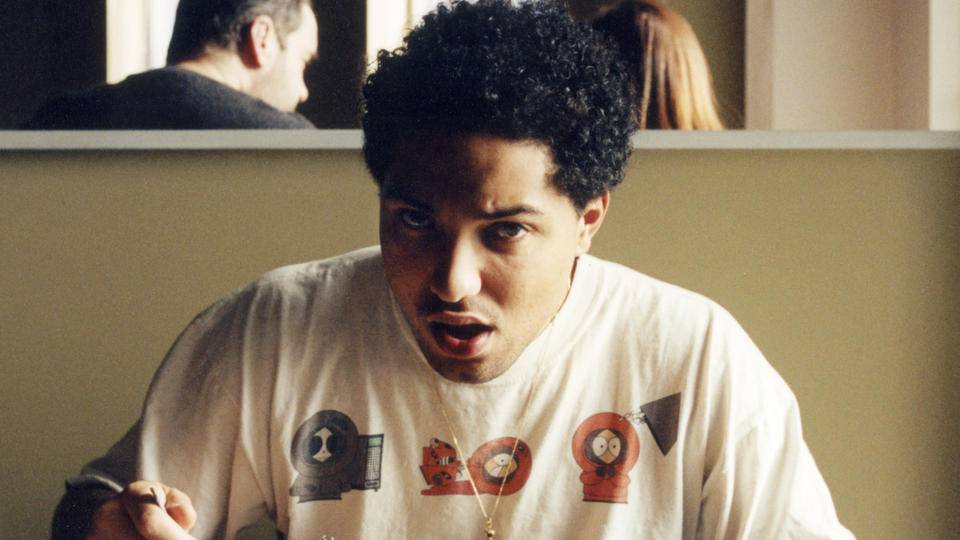What It's Like To Be In An Emotionally Abusive Relationship

When it comes to relationships, there are many different types of potential abuse that can be inflicted - and while physical abuse is easy to identify, emotional abuse often takes on a more subtle form that’s much harder to recognise.In fact, it’s abuse that often goes unnoticed by friends, family and even the victims themselves,which is why it’s so important to know some of the red flags to look out for.
MTV spoke to Gabby*, who struggled to leave an emotionally abusive relationship for over two years, to find out what it canreally like to be a victim of emotional abuse.
Walking on eggshells
As emotionally abusive relationships progress, victims will often begin to change their behaviour in order to avoid conflict. As Gabby puts it: “It got to the point where I was in a constant state of alert, trepidation, and to be honest - downright fear. I was scared to make a decision, scared to speak my mind, scared to even suggest plans or what TV show we should watch… because I could never be sure what might set him off, or offend him, or send him into one of his dark, brooding moods.
"I started to lose any sight of who I was, because I was so busy trying to predict and deflect any potential triggers. I was trying to be exactly who he wanted me to be, which was impossible - because nothing was good enough for him. It was exhausting.”
Gaslighting
Gaslighting is a manipulation tactic used to gain power - denying or distorting a version of events to a point where someone begins to question reality, and/or the reliability of their own mind. As Gabby recalls: “When I look back, I can see that he was gaslighting me, yes. In the context of a relationship that can be so hard to see, though. I remember one time he’d flown into a huge stroppy rage because I hadn’t told him I was meeting a friend for a drink. Except I HAD told him, in a phone call the day before.
"He denied that vigorously, told me that I always did this, always tried to cover up my selfishness, always tried to hide how unthoughtful I was… I began questioning myself, until I was actually convinced that I HAD forgotten to tell him, and that I WAS a thoughtless as he was saying. It was awful, feeling the self-doubt creep in like that. It made me feel like a terrible horrible person, all of the time."
Encouraging Low Self-Esteem
To an emotional abuser, lowering their victim’s self-esteem is key in keeping control and exerting power. Gabby remembers it well: “He would, in very subtle ways, belittle and undermine any and all achievements. I could come back home in the best mood about something that had happened at work, and somehow end up feeling like crap after he played it down, or made some disparaging ‘joke’ about my job, talents, or physical appearance.
"If we were out at a restaurant, he’d point out other women he found attractive. ‘You could have a bum like that if you ever went to the gym’, ‘why don’t you ever take time to do your hair properly, look how hot she looks’ - that kind of thing. It doesn't sound like much, but imagine hearing stuff like this EVERY day for TWO years. My self-esteem was nothing by the time we actually broke up. He’d ground it to dust.”
Controlling Behaviour
A classic sign of emotional abuse, this is often disguised as ‘concern’ for your wellbeing. That was certainly the case for Gabby.
“When we first got together, the constant texting and wanting to know what I was up to seemed nice. I liked that he was attentive and cared about my day, and how it was going. However, over time it became clear that this was another form of control. If he messaged me and I didn’t reply instantly, he’d accuse me of all sorts: ranging from not caring about him (because I’m selfish) to cheating. If a text came through when I was driving I’d legit break out in a cold sweat because I couldn’t reply right away - I’d have to pull over to respond.
"He also made me give him all the passwords to my social media accounts, claiming that if I didn’t, we didn’t have ‘trust’, and there was no point in being together. It sounds so stupid when I say it out of context, but he was SO persuasive, and really did make me believe that this was all because he loved me so much.”
Withholding affection
Another way of exercising power and control, this is the intentional and frequent use of ‘punishment’ to some perceived slight or argument, via the use of withholding affection.
Gabby experienced this: "Sometimes he’d be the most affectionate person, and make me feel so loved - which only made the times when he turned to ice more… well, punishing. If I dared to stand up to him or disagree, he’d turn so cold and distant, forcing me to apologise, even if he’d started the argument! It was an endless cycle of me saying sorry, sometimes without even knowing what I’d done wrong, but just to keep the peace."
Shifting the blame
Abusers will very rarely, if ever, admit that something may have been their fault. An “If you just hadn’t done that, I wouldn’t have had to act that way in response,” scenario.
As Gabby puts it: “He made it so that everything came down to me and my actions. Say he got annoyed because I was half an hour or so late home from work, for example. He’d make me cry his reaction was so hostile, but then that would be MY fault, because I shouldn’t have been late in the first place. Again, I’d end up apologising. I was saying sorry, for making him make me cry. It sounds ludicrous now, but it was my life. For years.”
'*Names have been changed.'
'If you think you, or someone you know, may be in an emotionally or physically abusive relationship, then seek help. Do not struggle through alone, or allow them to isolate themselves. There are helplines, forums, and support networks you can talk to, to get out and move past this situation.Women’s Aid has a 24-hour helpline (0808 2000 247) and can talk you through any issues and help you figure out what you’d like to do next.The Men’s Advice Line(0808 801 0327) provides the same service for men.'
'- Words by Lizzie Cox.'





